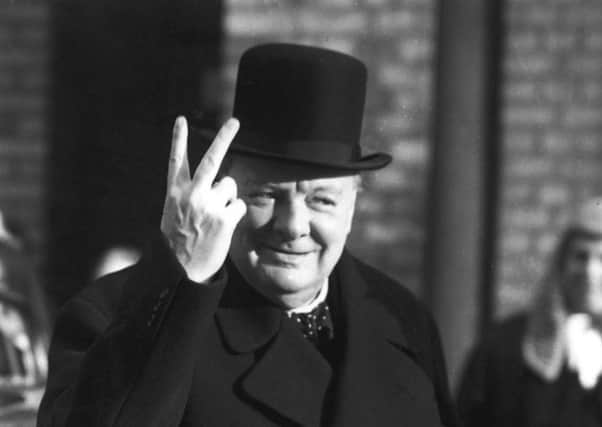Leader Comment: Least-worst leader is far from the best case scenario


In 1947, Winston Churchill declared “no one pretends that democracy is perfect or all-wise” and noted it had been said before that it was the “worst form of Government – except for all those other forms that have been tried”.
It now appears the great British electorate are being asked, via the least-worst system we have managed to develop, to choose their least-worst government.
Advertisement
Hide AdAdvertisement
Hide AdA recent UK poll found Boris Johnson had an approval rating of minus 8.6, followed by Liberal Democrat leader Jo Swinson on minus 20, Nigel Farage on minus 30 and Jeremy Corbyn on minus 39.
Leading pollster John Curtice described the battle between the Conservatives and Labour over who will be in 10 Downing Street after 12 December as an “unpopularity contest”.
Johnson may be encouraged that he is currently significantly less unpopular than Corbyn, but Curtice added a barb: “I think he is the most unpopular new prime minister in polling history.”
Tactical voting and electoral pacts have been partly driven by the fracturing of political boundaries caused by Brexit, but they may also reflect the absence of a political leader with the kind of inspirational character around whom the nation can rally.
On the Remain side of the argument, the likes of Labour’s Keir Starmer, Anna Soubry, the ex-Tory who now leads The Independent Group for Change, and Dominic Grieve, the former attorney general, who had the Conservative whip removed and is now an independent, have stepped up to the plate.
But Starmer has to cope with his boss’s obfuscation on Brexit, Soubry’s profile has slipped since she quit Johnson’s party and a single independent will always struggle on the national stage.
However, when Grieve says Johnson is an “extremely troubling” individual and that he has “never experienced a politician in modern British history who is so elastic with truth”, there are lots of Conservatives who will take that seriously and be worried.
It may persuade some to look elsewhere or perhaps simply not vote, but regardless of their decision, what it does do is damage our worst form of government, apart from all the rest.
Advertisement
Hide AdAdvertisement
Hide AdPoliticians in all parties need to consider this situation carefully. Given the absence of real leaders, it may make short-term sense to engage in mud-slinging at opponents in the hope that the public will buy the idea that “their leader is worse than ours”.
However, in the longer term, that’s a self-destructive strategy as each side is gradually torn down by the other.
The most dangerous outcome of that process is the end of democracy itself. But, smart political operators should realise that it also represents an opportunity for an honest, decent and, dare we say, honourable leader to emerge who can put the rest to shame.
Now, all we need to do is find one…